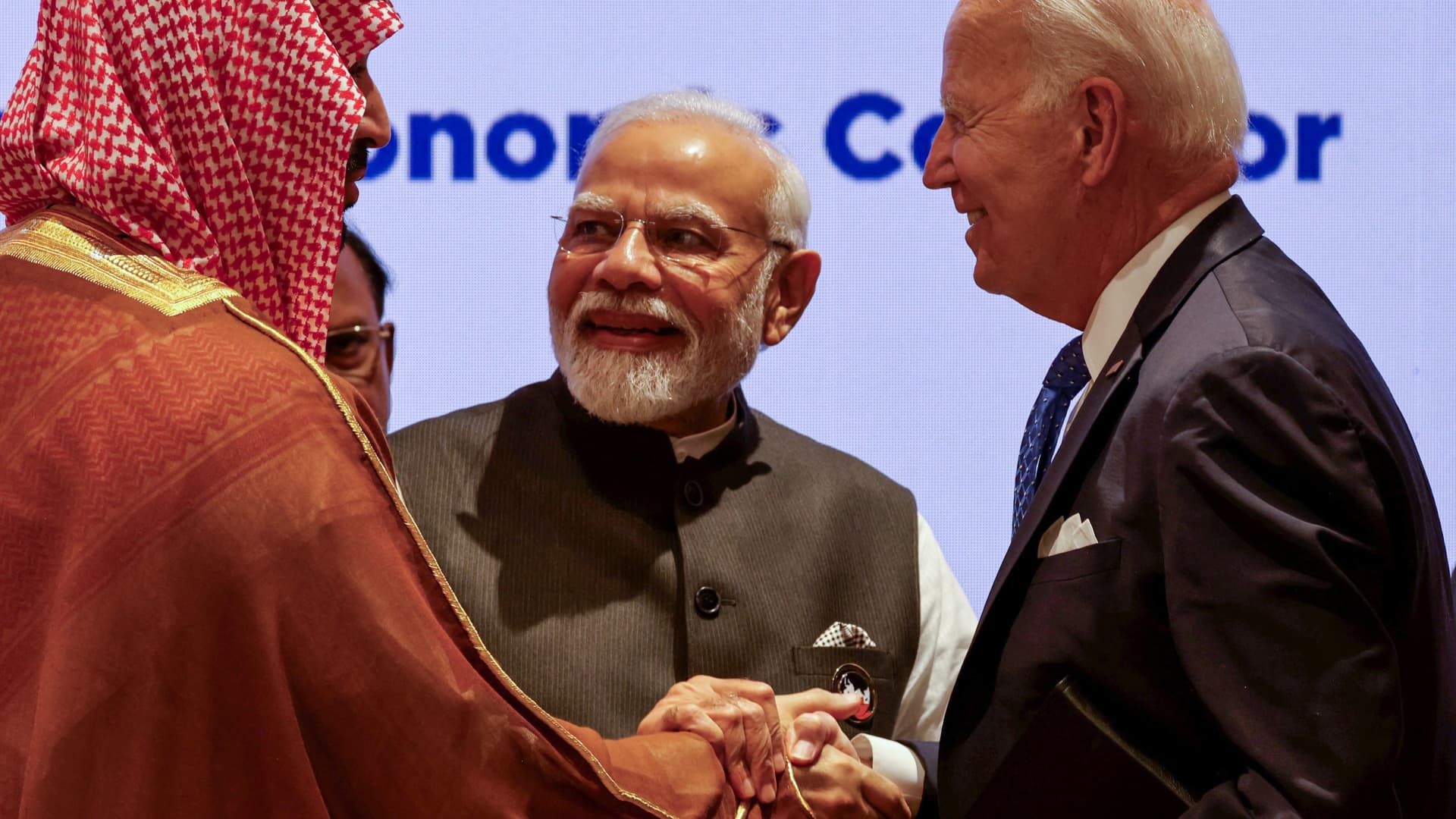Saudi Arabia’s Crown Prince and Prime Minister, Mohammed bin Salman, India’s Prime Minister Narendra Modi, and US President Joe Biden attended a session at the G20 Leaders’ Summit in New Delhi on September 9, 2023. This unexpected sight of President Biden shaking hands with the Saudi Crown Prince marks a significant turnaround in the US-Saudi Arabia relationship. Just a year ago, Biden had warned of consequences for the Saudi-led oil cartel’s decision to cut crude production and increase prices during Russia’s war in Ukraine.
The presence of Saudi Arabia at the G20 summit not only highlights its growing importance but also signifies the range of economic and strategic opportunities available to countries caught between the rivalries of the US and China. As major Western nations seek to reduce economic risk associated with China, a fragmentation of the global economy is occurring, resulting in a complex web of relationships among nations pursuing their own self-interests.
While China’s Belt and Road Initiative (BRI) has been a dominant force in global infrastructure investment, Saudi Arabia’s participation in the Biden-led ship-to-rail economic corridor linking India with Middle Eastern and European Union countries shows that alternative alliances and partnerships are emerging. The promise of investment in infrastructure projects in developing economies is a key attraction for these countries and aligns with the objectives of China’s BRI.
The Biden-led initiative includes two separate corridors: the east corridor connecting India to the Middle East, and the northern corridor connecting the Middle East to Europe. These corridors will boost regional supply chains, trade connectivity, and economic activity.
China’s BRI, which now involves 148 partner countries, serves as a reminder of the challenges Biden’s global infrastructure pact may face. BRI deals often involve loans with higher interest rates than those offered by multilateral banks. Additionally, these deals typically involve Chinese companies and may not yield returns for the original investor. Concerns about debt and commercial viability have led to renegotiations and write-offs of Chinese loans for infrastructure projects.
Despite these challenges, Biden’s initiative presents a strategic alternative, focusing on existing ports, railway lines, and energy grids. By leveraging infrastructure already paid for and built under the BRI, the US aims to overcome domestic challenges to trade liberalization. This approach emphasizes connectivity and investment as a means to mitigate the obstacles posed by nationalistic sentiments.
Overall, the presence of Saudi Arabia at the G20 summit and its participation in the Biden-led economic corridor highlights the evolving dynamics of global alliances and partnerships. As middle powers rise, countries are navigating a multipolar world where self-interests drive complex relationships and economic strategies.
Denial of responsibility! Vigour Times is an automatic aggregator of Global media. In each content, the hyperlink to the primary source is specified. All trademarks belong to their rightful owners, and all materials to their authors. For any complaint, please reach us at – [email protected]. We will take necessary action within 24 hours.


